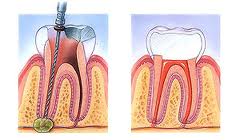I suffer from PTSD, and for the past 4 years, I clench my teeth during the day and grind them at night. I have some neck pain and headaches that I think are related to my habit. I’ve had the same dentist since 2011, and he says my teeth look okay. But I’m starting to feel short spurts of dull pain in my lower molar teeth. My last exam and cleaning appointment was in mid-February. I’m afraid of the dentist anyway and need sedation for all my appointments. Now with the COVID-19 restrictions, I’m not going to any dentist. Besides, the office is only open for emergencies. I’m wondering if the dull pain and pressure on my lower teeth might be due to cavities or from teeth grinding. Is there anything I can do about this at home? – Thanks. Quinn from San Antonio
Quinn – We’re not sure why your dentist though your checkup appointment was good if you’ve been clenching and grinding your teeth for about four years. And you’re feeling pain and pressure in your teeth. That’s a problem.

Dr. Lacy would need to review your x-rays and check your teeth and mouth. We’re concerned that your dentist didn’t thoroughly examine your teeth.
When you clench and grind your teeth, more than cavities and fillings are involved. Other oral health issues can arise, including
- TMJ disorder
- Gum disease
- Poor occlusion
We recommend that you seek a second opinion from a dentist who will be more thorough. The pain you’ve described could be from gum disease or the trauma of grinding your teeth. In either case, you need an examination. Without an exam, gum disease can progress and lead to jawbone loss. Grinding your teeth will wear them away.
Your new dentist may be able to resolve your pain and discomfort with a custom night guard. It’s worth it to contact a new dentist and at least have a video conference to describe your symptoms. You’ll receive recommendations on what you can now and how to handle the situation before you see a dentist.
Plano, TX female dentist Dr. Miranda Lacy sponsors this post.
